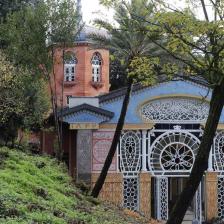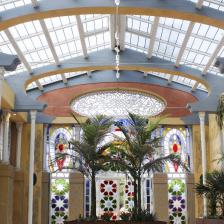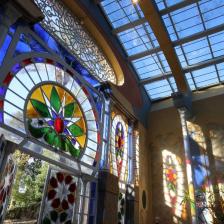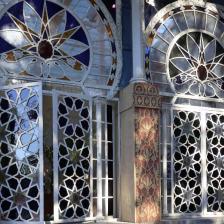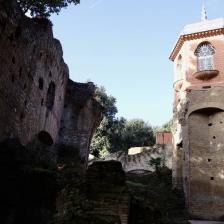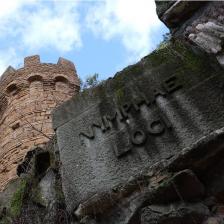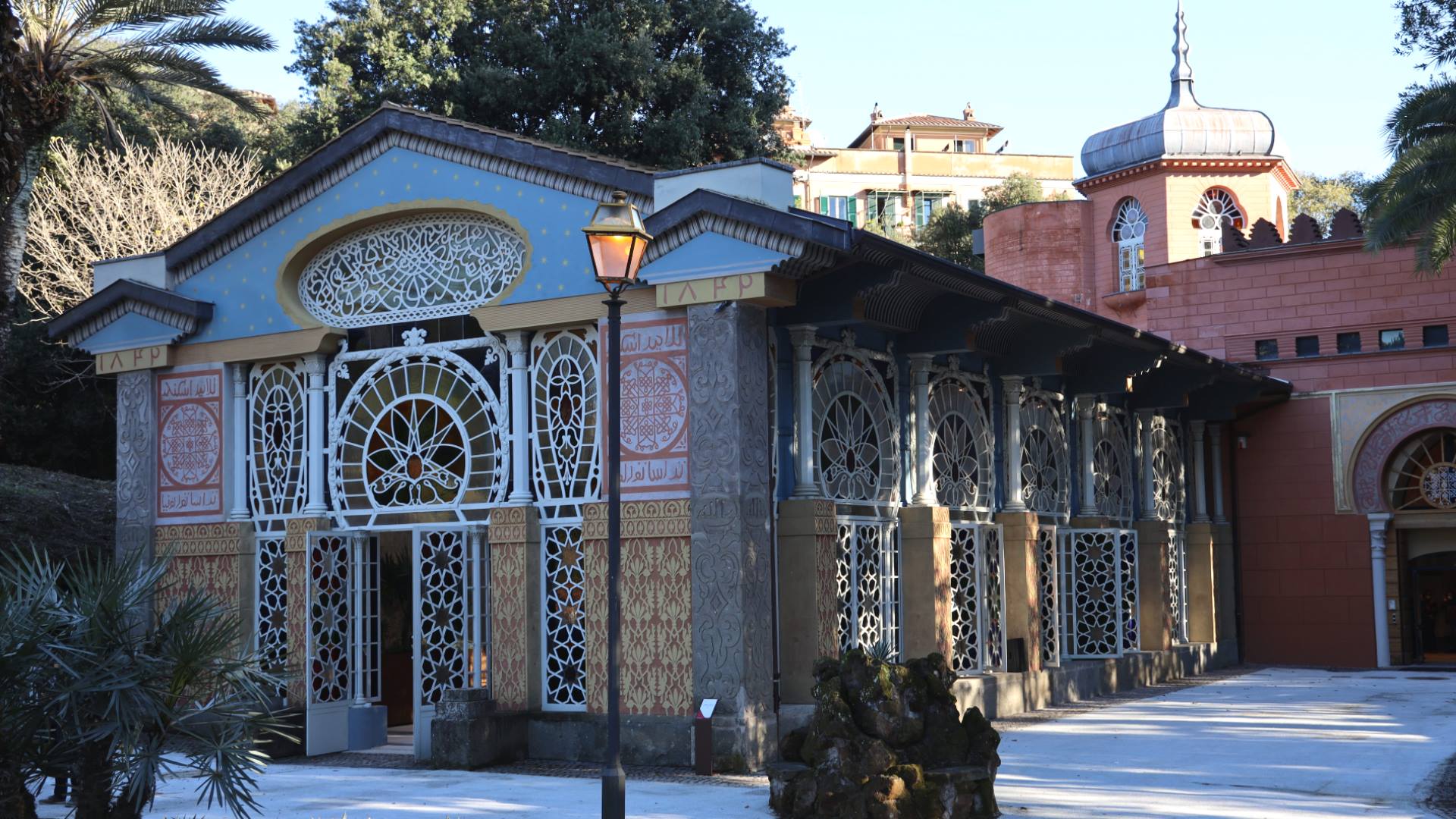
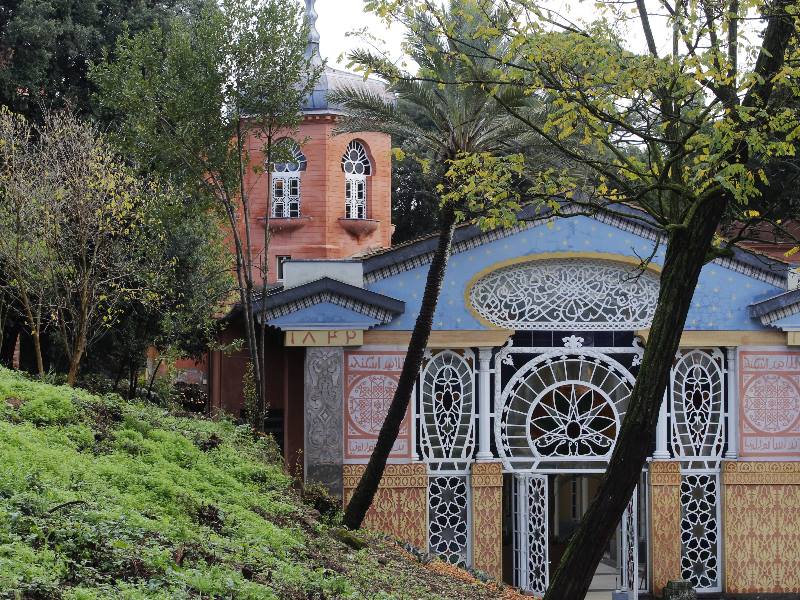
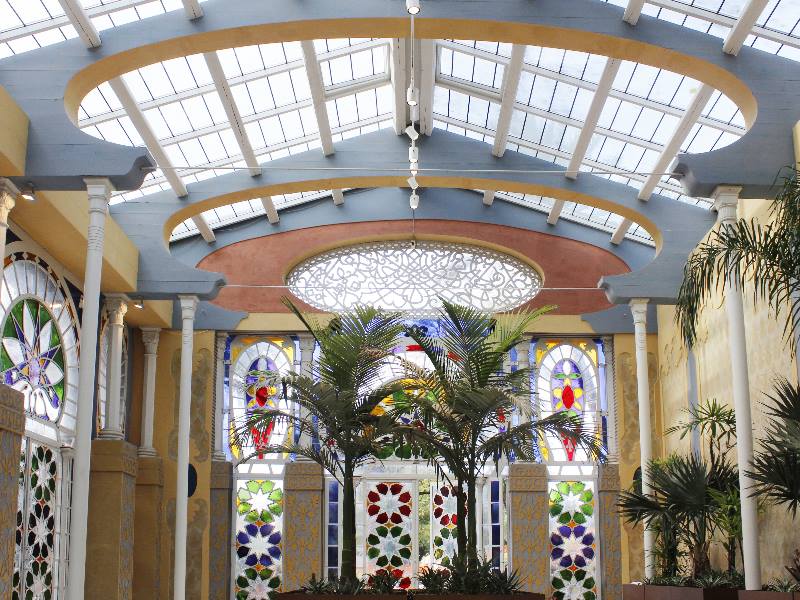
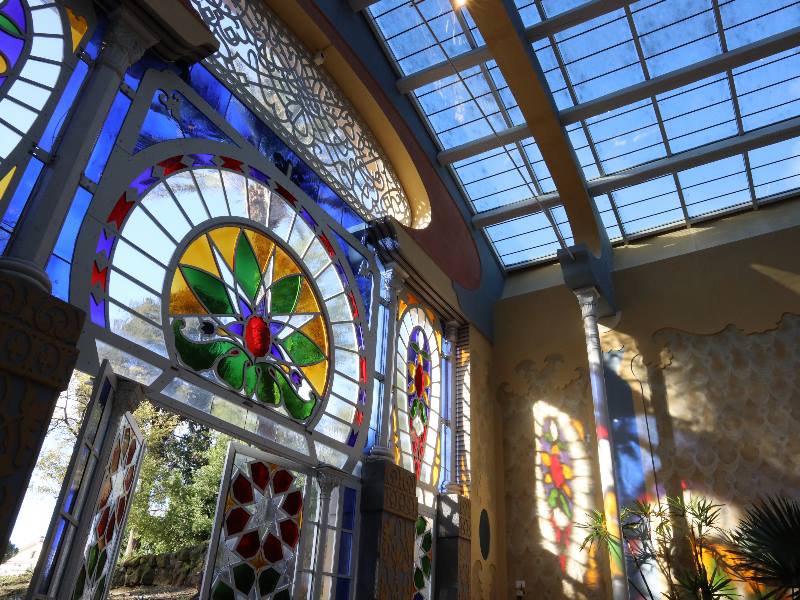
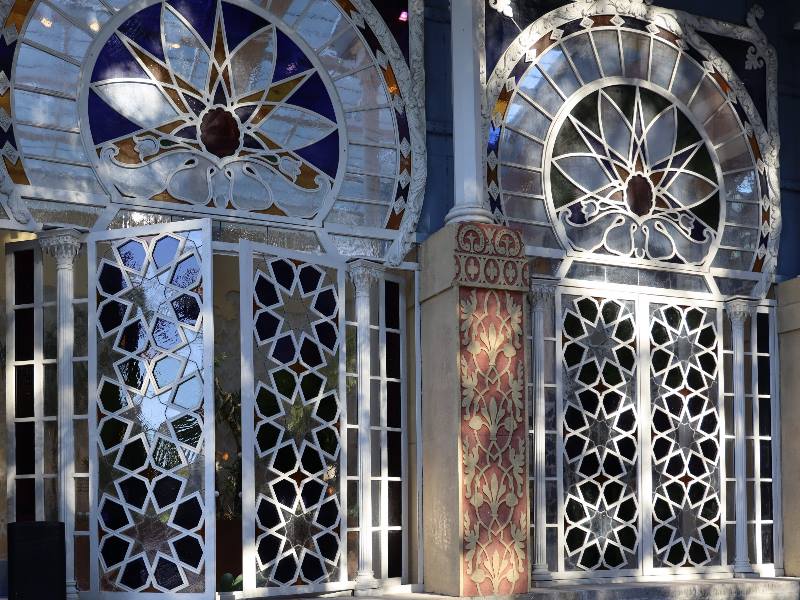
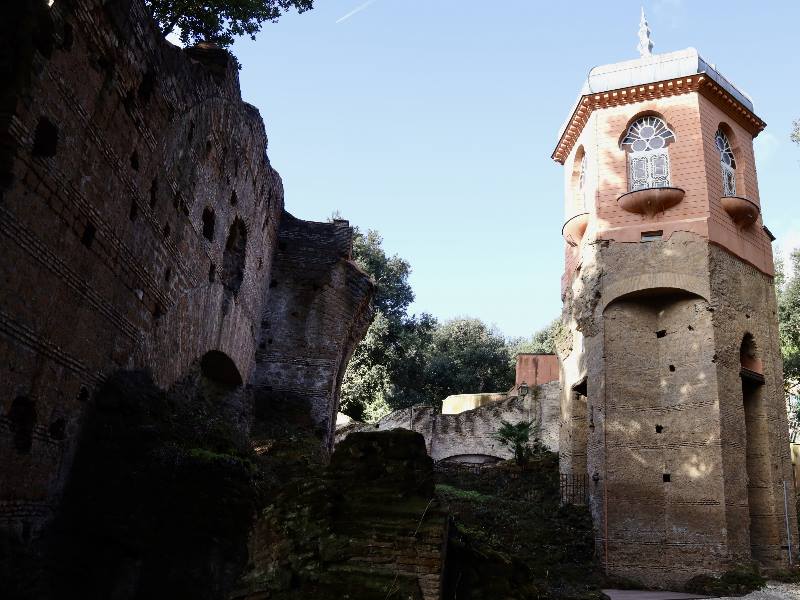
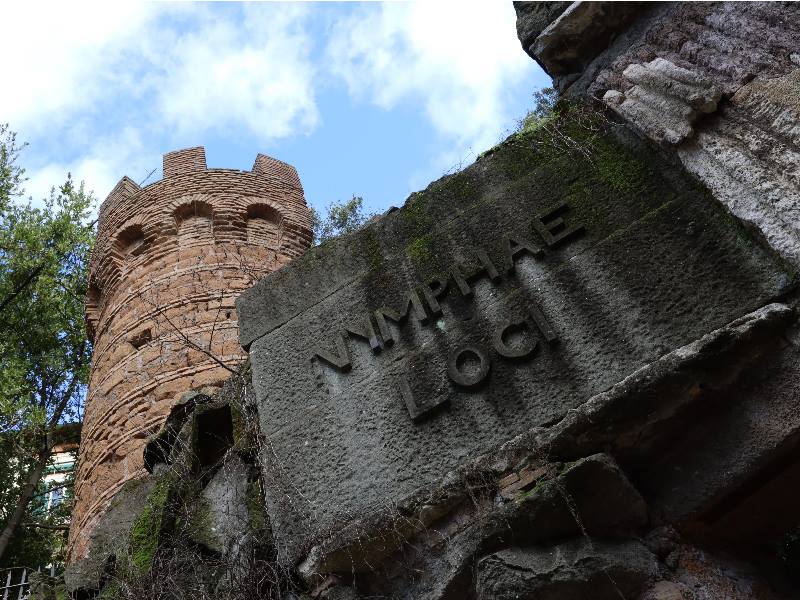
In 1832, Prince Alessandro Torlonia commissioned a series of embellishment works for the sumptuous family residence on Via Nomentana, entrusting the Venetian architect Giuseppe Jappelli with the arrangement of the entire southern section.
This area was completely transformed in a scenographic way, with irregular paths, ponds, exotic plants, and decorated with unusual buildings and outdoor furniture. Besides the original Swiss hut - today Casina delle Civette - around 1839, the landscape architect designed the Serra Moresca, completed in 1841 with the decorations by Giacomo Caneva, the Moorish Tower, and the Grotto, inspired by the architecture of the Alhambra in Granada.
The Serra is a splendid garden pavilion, a triumph of polychrome glass, iron and cast iron with a peperino structure. The building was intended to host exotic and rare plants and spectacular events, as proved by the presence of a semi-hidden compartment for the orchestra inside the great hall.
The Tower was usually reserved for the prince's most intimate meetings, for a few participants invited to the sumptuous dining room on the top floor. The building has large windows with cast iron frames and coloured glass and walls sumptuously decorated with polychrome stucco. In the centre of the room was a sofa. It could be raised to the ceiling by the action of a mechanism, while a richly laden table rose from the floor below to surprise guests.
Between the two buildings, Jappelli created an artificial cave supported by wooden and stucco structures - no longer existing - with suspended ponds and wooden paths, partially preserved. The area was conceived as Nymphae Loci, the place of the Nymph: a natural environment rich in water to amaze and surprise anyone who crossed it.
The complex is currently part of the Museums of Villa Torlonia, together with Casina delle Civette, dedicated to the artistic stained glass window; Casino Nobile, which houses the Museo della Villa and the collection of Scuola Romana; Casino dei Principi, home to the Scuola Romana archive and temporary exhibitions space.
The museum itinerary winds through a suggestive natural - historical scenario, which starts from the Serra, framing palms, agaves, pineapples and aloes and inside which the existing fountain has been reactivated. The first floor is now intended for workshops and education; the outdoor space is dedicated to events, exhibitions, fairs, shows and environmental education meetings. After a look at the imposing Tower, it is possible to admire the remains of the cave, highlighted by scenographic lighting. Here, waterfalls and lakes are made even more suggestive by water lilies, oxygenating plants and lotus flowers.
Casina delle Civette (The House of Owls)
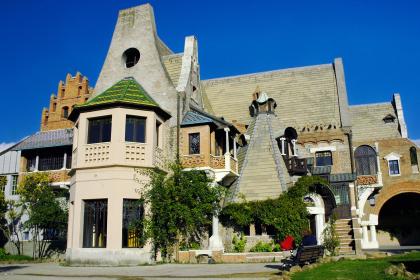
 Condividi
Condividi
Musei di Villa Torlonia - Casino Nobile
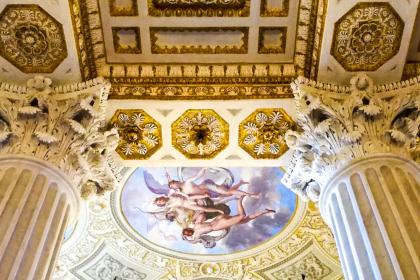
 Condividi
Condividi
Museums of Villa Torlonia - Casino dei Principi
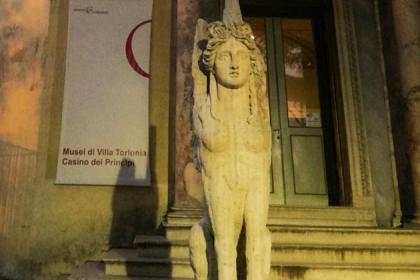
 Condividi
Condividi
Information
Serra Moresca and Moresca Tower (ticket office at Casino Nobile and Serra Moresca)From 1 April to 30 September (except in July and August for summer closure):Tuesday to Sunday 10 to 17 (last entry at 18.20)From 1 October to 31 March:Tuesday to Sunday 10 to 16 (last admission at 15.20)1 January 2024 11.00 - 16.00The Moresca Tower can always be visited during opening hours, staff accompany visitors every 30 minutes.Closed on: Monday, 1 May and 25 DecemberSummer closure: July and August
The Moresca Tower can NOT be visited on the 1st Sunday of the month
 Condividi
Condividi
Location
To find out about all accessibility services, visit the Rome accessible section.













































